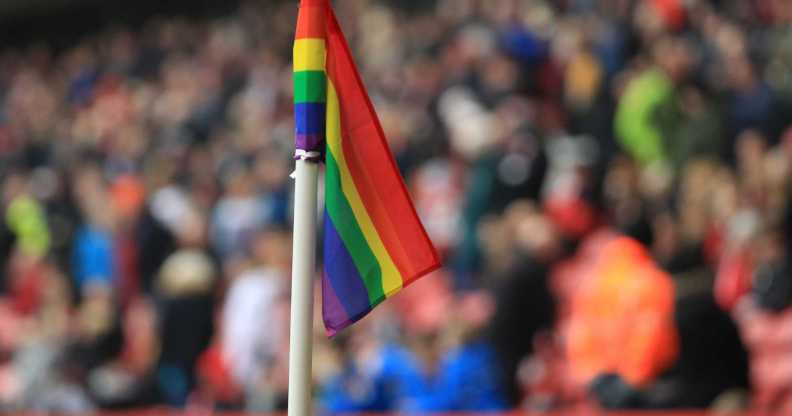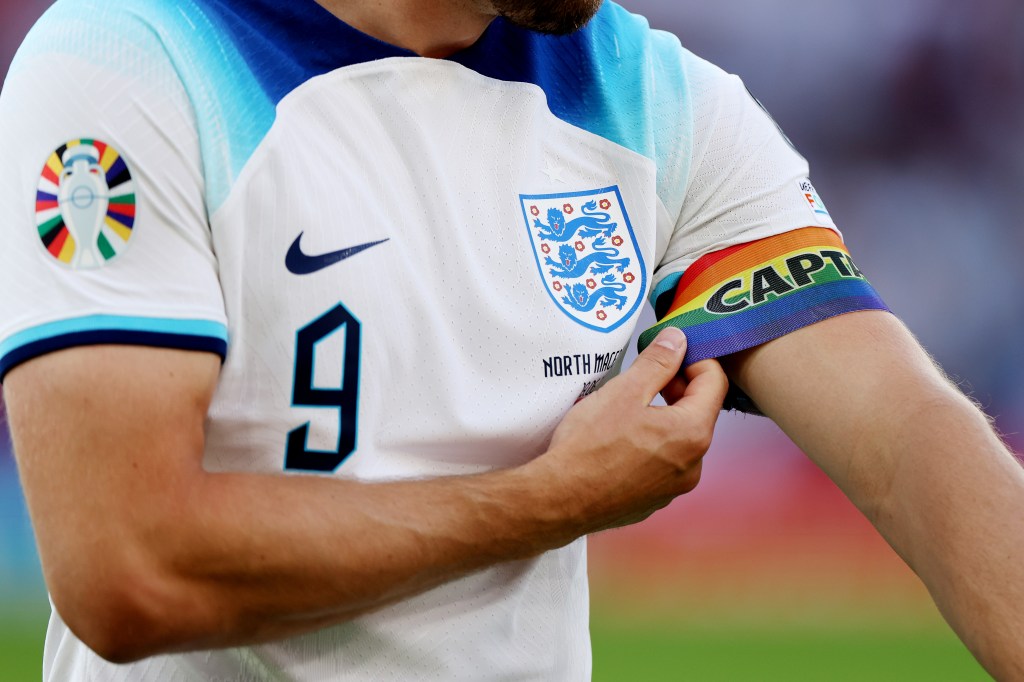Football fans think discrimination in game is shrinking, survey suggests

A general view of a rainbow coloured corner flag during the Sky Bet Championship match between Middlesbrough and Hull City at the Riverside Stadium, Middlesbrough on Sunday 24th November 2019. (Mark Fletcher /MI News/NurPhoto via Getty Images)
Nearly three-quarters of football fans think fellow supporters are more concerned about discrimination than they were 30 years ago, new research from anti-discrimination organisation Kick It Out has revealed.
Kick It Out published The Impact Report – a survey of nearly 3,000 football fans on their experiences of, and opinions on, discrimination, diversity and inclusion – to mark its 30th anniversary on Tuesday (8 August).
The research shows a majority of fans feel there is less discrimination in football than when Kick It Out was launched in 1993, and 73 per cent of fans believe football has become more inclusive.
Of the fans who have previously experienced discrimination, 69 per cent said they now experience less discrimination than they used to, due to the work of Kick It Out.
Alongside this, 70 per cent of football fans said they would feel comfortable calling out a friend for discrimination, but less (34 per cent) were comfortable confronting a stranger.
Despite the strides made, 85 per cent of those surveyed feel more needs to be done to combat discrimination towards fans at stadiums and 87 per cent said more needs to be done to tackle abuse towards players at stadiums.
The report comes as the Women’s World Cup reaches its final stages, with US pro Megan Rapinoe finding herself at the receiving end of a right-wing backlash over her politics.
Speaking at a launch event at Wembley Stadium, Kick It Out trustee Chris Paouros told PinkNews that “football is better because Kick It Out is here” – but that there is a lot of work yet to be done.
Paouros, also the co-founder of Tottenham Hotspur’s LGBTQ+ supporter club Proud Lilywhites, added: “I don’t want to see racial abuse of players on social media afterwards, I don’t want to have to hear homophobic chanting at football stadiums.”
Kick It Out chief executive Tony Burnett added that the organisation is focused on the future and the “changes needed to make football a more welcoming place”.

He said: “We require focus, commitment and determination to drive fair representation and build an inclusive culture across football from elite level to the grassroots.
“That’s why we’re calling on football to urgently introduce a transparent system to track workforce representation data for players, coaches and managers, and senior leadership.”
He continued: “We also want football to commit to targets for better representation, whether that be black managers, south Asian professional players, or black, Asian and female leaders and referees.
“Our job is far from over, and we will be working tirelessly with our football partners in the years ahead to deliver tangible change in those areas.”
Kick It Out’s chair, Sanjay Bhandari, added: “Now is not the time for the game to rest on its laurels.
“We remain unwavering in our resolve to end all forms of discrimination in sport for good and need stakeholders across sport to join us on that journey.”
The findings come two months after Kick It Out revealed that it received a record 1,007 reports of discriminatory behaviour across the professional game, grassroots clubs and social media during the 2022/23 football season.
These figures represented a huge 65.1 per cent rise on the previous season.
As the numbers show, racism remains the most prevalent form of abuse in both professional and grassroots football and accounted for just under half of all reports made to Kick It Out during the 2022/23 season.
Kick It Out noted that such statistics represent that “discrimination is still a serious issue within the game” record figures could also be attributed to an “increased awareness of reporting procedures and fans becoming less tolerant of discriminatory behaviour”.

